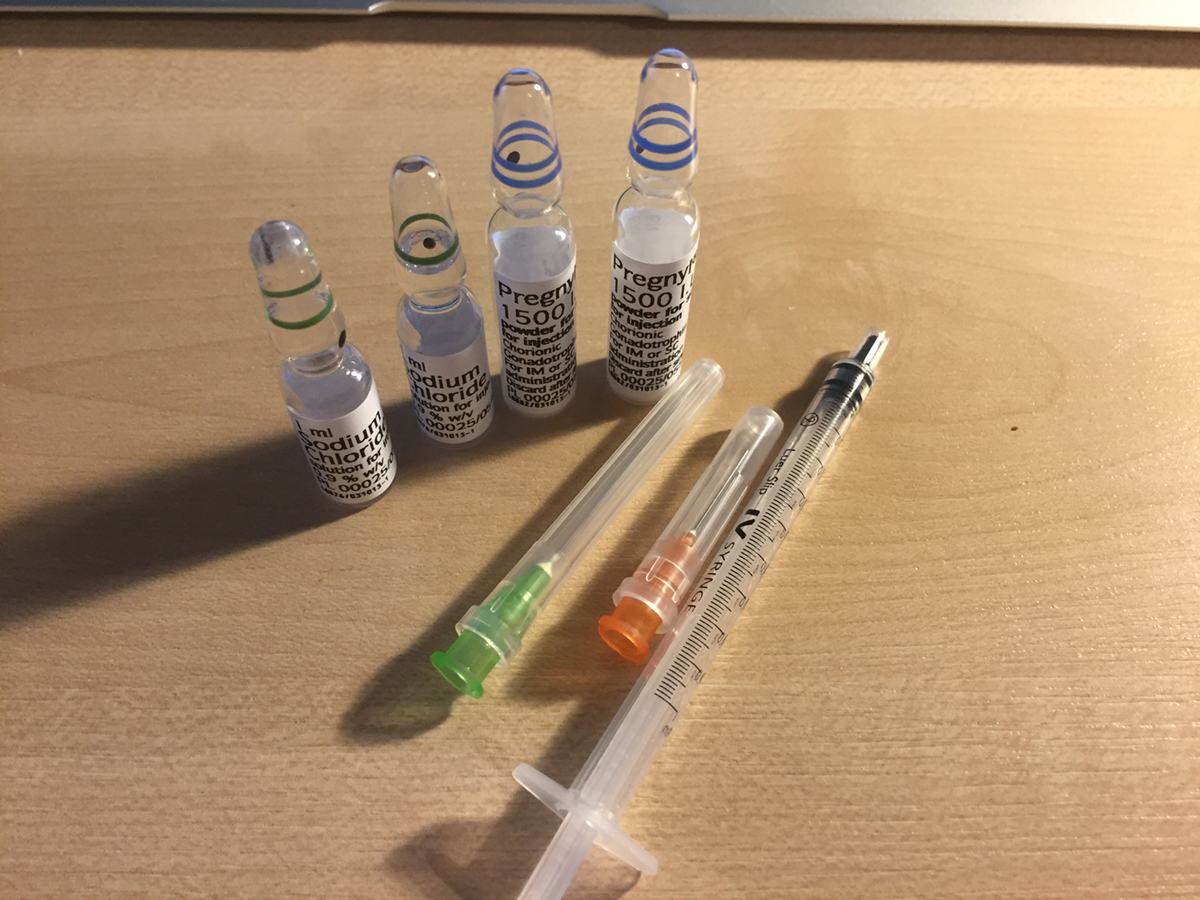
Human Chorionic gonadotropin, the abbreviation of which is hCH, is a pregnancy hormone, which can be found in the urine or blood of a pregnant woman, and because of that, a urine or blood sample is used to establish the early pregnancy in women. If the human Chorionic gonadotropin is found in a sample and in concentration above 25 milli-international units per milliliter, then the pregnancy is confirmed.
Functions of human Chorionic gonadotropin – hCG
Human Chorionic gonadotropin is produced by the embryo after the conception. The best time to test the existence of this hormone in blood is about eight to eleven hours after the ovulation. The main role of the human Chorionic gonadotropin is to protect the corpus luteum, which is a temporary endocrine tissue of the ovary that has the role to maintain the pregnancy. The corpus luteum in the ovary secretes the important hormones: progesterone and estrogen. Human Chorionic gonadotropin is also believed to have the role to influence the immune responses of the body.
Normal human Chorionic gonadotropin levels
When a woman thinks she is pregnant, a doctor orders the pregnancy test in which the levels of hCG are checked. The levels of this hormone tend to vary and fluctuate. However, the normal level range for this hormone exists, but it depends on how long a woman is pregnant. In the first weeks of pregnancy, the amount of human Chorionic gonadotropin tends to double every two or three days.
The human Chorionic gonadotropin levels in early pregnancy, particularly in the first eight to eleven weeks, are the highest. Once the level reaches its peak, it starts to drop gradually. When a woman is four weeks pregnant, her human Chorionic gonadotropin level is between 5 - 426 milli-international units per milliliter. One should know that, if the levels of this hormone are low, it does not mean that it is associated with some medical problems.
Normal human Chorionic gonadotropin levels in women who are not pregnant are considered to be 5 milli-international units per milliliter or even lower. Normal human Chorionic gonadotropin levels in women after miscarriage cannot be determined precisely because of the fact that the level of this hormone after this depends on various factors, such as how miscarriage occurred, the duration of pregnancy and human Chorionic gonadotropin levels at the time of miscarriage. However, the normal levels of this hormone are restored four or six weeks after the pregnancy loss.





-During-Pregnancy_f_280x120.jpg)











Your thoughts on this
Loading...